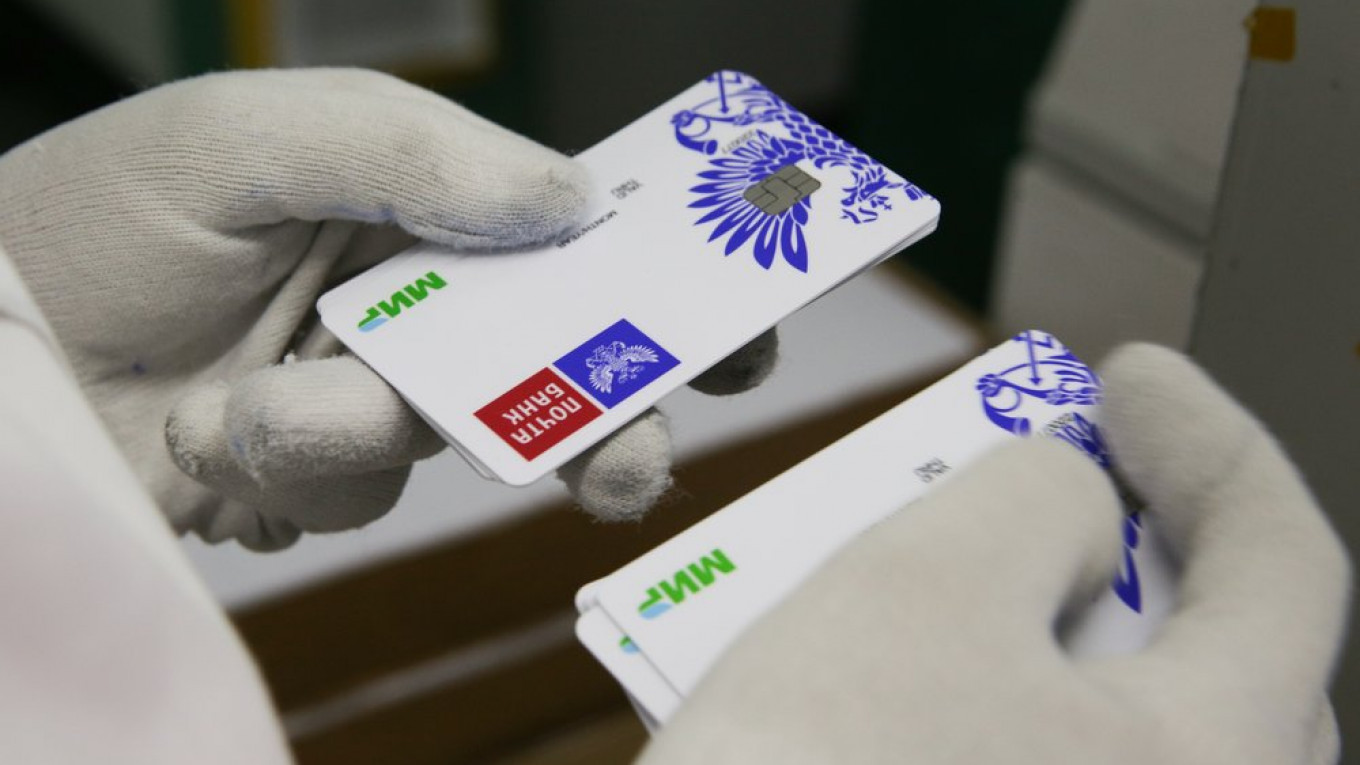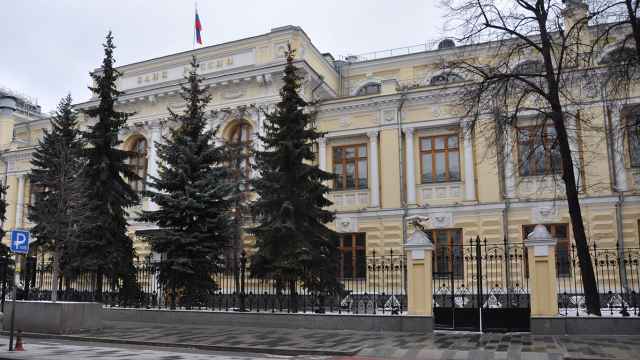Russia is encountering difficulties in the global expansion of its payment system set up to circumvent Ukraine-related sanctions, the head of the Russia's Central Bank said Friday.
Visa and Mastercard suspended their operations in Russia following the Ukraine offensive, meaning foreign-issued cards no longer worked there and cards issued in Russia no longer worked abroad.
Bank transfers between Europe and Russia have become difficult too.
Russia began developing its own domestic payments system in 2015 following a first round of Western sanctions over Russia's annexation of Crimea the previous year.
It resulted in the creation of a card payment system called Mir, or World, but it fact the cards are not accepted around the world.
Russian authorities would like the cards to be accepted abroad, which would ease the financial difficulties Russians now face while traveling.
"We are working with many regulators from many countries to extend the use of Mir bank cards but we are running into difficulties," Russian Central Bank chief Elvira Nabiullina said Friday.
She added that foreign banks were reluctant to join the Mir system as they are "trying to minimize the risk of (potential) sanctions against them."
More than 100 million Mir cards have been issued over the past seven years, meaning over half of the Russian population has one, according to figures from the card's issuing company.
Some of the population does not have a choice: public sector employees and pensioners need a Mir card to receive state funds and benefits.
The Mir payment system is currently only available in a handful of countries including Belarus and Kazakhstan.
Several Russian banks said they are working on issuing cards with China's Union Pay as a substitute.
Russia has been reducing its dependency on the dollar and the U.S.-dominated global financial system after being hit by unprecedented sanctions since it launched the Ukraine offensive in February.
A Message from The Moscow Times:
Dear readers,
We are facing unprecedented challenges. Russia's Prosecutor General's Office has designated The Moscow Times as an "undesirable" organization, criminalizing our work and putting our staff at risk of prosecution. This follows our earlier unjust labeling as a "foreign agent."
These actions are direct attempts to silence independent journalism in Russia. The authorities claim our work "discredits the decisions of the Russian leadership." We see things differently: we strive to provide accurate, unbiased reporting on Russia.
We, the journalists of The Moscow Times, refuse to be silenced. But to continue our work, we need your help.
Your support, no matter how small, makes a world of difference. If you can, please support us monthly starting from just $2. It's quick to set up, and every contribution makes a significant impact.
By supporting The Moscow Times, you're defending open, independent journalism in the face of repression. Thank you for standing with us.
Remind me later.






